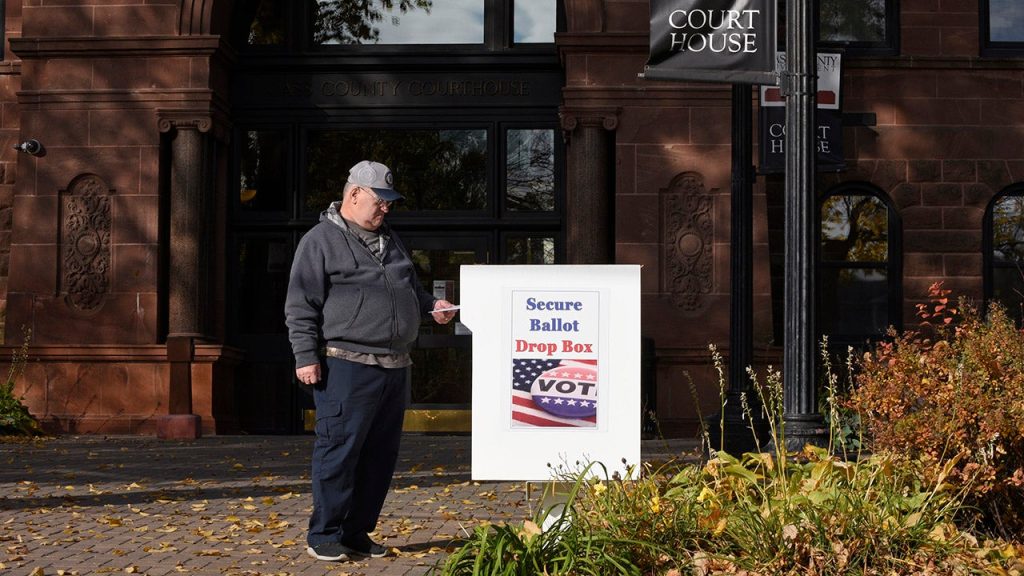North Dakota voters recently approved a ballot measure that establishes age limits on congressional candidates. The measure, which received 60.88% of the vote, prohibits individuals from running for or serving in the U.S. House or Senate if they would turn 81 years old during their term. Supporters of the measure argue that it is necessary to avoid age-related and cognitive issues among officeholders. The measure is not applicable to presidential contenders, but has come under scrutiny amidst concerns over President Biden’s mental fitness.
The same day the ballot measure passed, U.S. Rep. Kelly Armstrong won the Republican primary for governor of North Dakota. Armstrong beat Lt. Gov. Tammy Miller in the race to succeed Republican Gov. Doug Burgum, who did not seek a third term and may potentially be Trump’s vice presidential running mate. Longtime public utilities regulator Julie Fedorchak finished first in the GOP race for the House seat that Armstrong will vacate. Legal experts view the measure as a potential test case for revisiting a 1995 U.S. Supreme Court ruling against congressional term limits, with a $1 million cost estimate attached to anticipate potential legal challenges.
The measure’s sponsoring committee chair, Jared Hendrix, emphasized the importance of age limits to ensure lawmakers are in good health to represent North Dakotans in Washington, D.C. The decision to set the age limit at 81 was made to minimize opposition. However, Republican U.S. Sen. Kevin Cramer, who faced no primary challenge for re-election, opposed the measure. Cramer, aged 63, argued that voters should have the freedom to choose their candidates without arbitrary limitations. The passage of the measure is likely to spark further debate and legal challenges in the future.
The implementation of age limits on congressional candidates in North Dakota reflects a growing concern over the mental and physical fitness of elected officials, particularly in light of President Biden’s age and the upcoming presidential election. Supporters of the measure believe that setting age limits can help ensure that lawmakers are able to effectively represent their constituents and make informed decisions. Critics, such as Sen. Cramer, argue that such limitations restrict the choices available to voters and may not be necessary to address concerns over age-related issues.
Overall, the approval of the ballot measure in North Dakota marks a significant development in the ongoing debate over age limits for elected officials. The measure’s passage indicates a willingness among voters to address concerns about the health and fitness of lawmakers, particularly in high-stakes positions such as those in Congress. As the measure potentially faces legal challenges and further scrutiny, its impact on future elections and the composition of Congress remains to be seen. The debate over age limits in politics is likely to continue as the country grapples with questions of leadership, experience, and representation.


